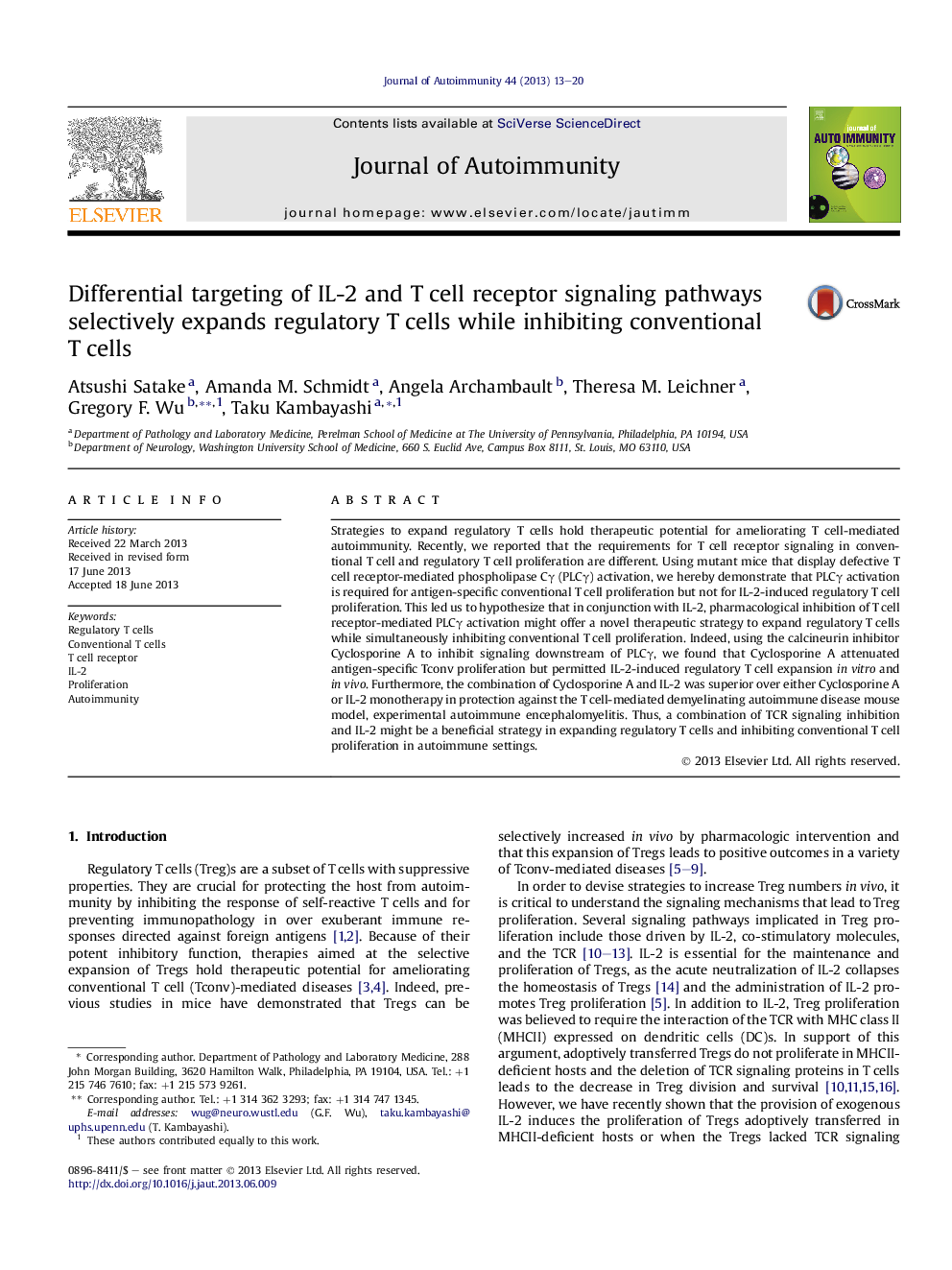| Article ID | Journal | Published Year | Pages | File Type |
|---|---|---|---|---|
| 6119330 | Journal of Autoimmunity | 2013 | 8 Pages |
Abstract
Strategies to expand regulatory T cells hold therapeutic potential for ameliorating T cell-mediated autoimmunity. Recently, we reported that the requirements for T cell receptor signaling in conventional T cell and regulatory T cell proliferation are different. Using mutant mice that display defective T cell receptor-mediated phospholipase Cγ (PLCγ) activation, we hereby demonstrate that PLCγ activation is required for antigen-specific conventional T cell proliferation but not for IL-2-induced regulatory T cell proliferation. This led us to hypothesize that in conjunction with IL-2, pharmacological inhibition of T cell receptor-mediated PLCγ activation might offer a novel therapeutic strategy to expand regulatory T cells while simultaneously inhibiting conventional T cell proliferation. Indeed, using the calcineurin inhibitor Cyclosporine A to inhibit signaling downstream of PLCγ, we found that Cyclosporine A attenuated antigen-specific Tconv proliferation but permitted IL-2-induced regulatory T cell expansion in vitro and in vivo. Furthermore, the combination of Cyclosporine A and IL-2 was superior over either Cyclosporine A or IL-2 monotherapy in protection against the T cell-mediated demyelinating autoimmune disease mouse model, experimental autoimmune encephalomyelitis. Thus, a combination of TCR signaling inhibition and IL-2 might be a beneficial strategy in expanding regulatory T cells and inhibiting conventional T cell proliferation in autoimmune settings.
Related Topics
Life Sciences
Immunology and Microbiology
Immunology
Authors
Atsushi Satake, Amanda M. Schmidt, Angela Archambault, Theresa M. Leichner, Gregory F. Wu, Taku Kambayashi,
